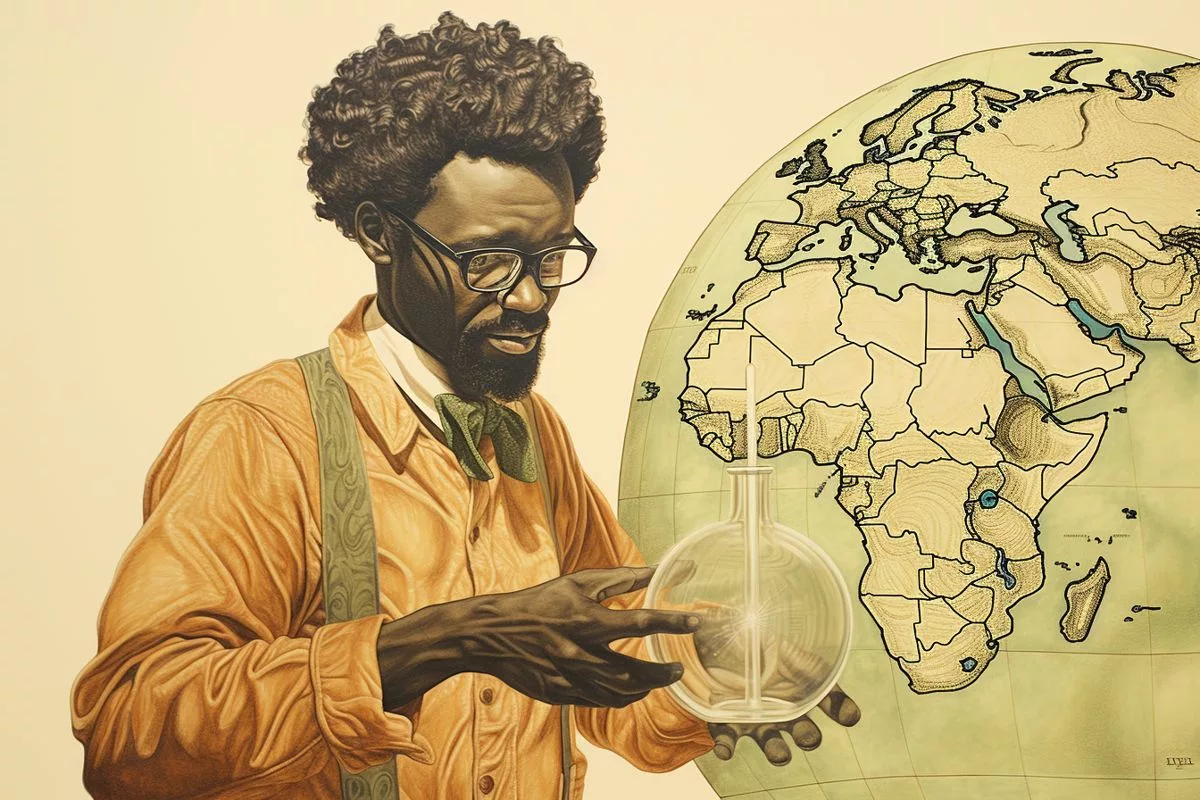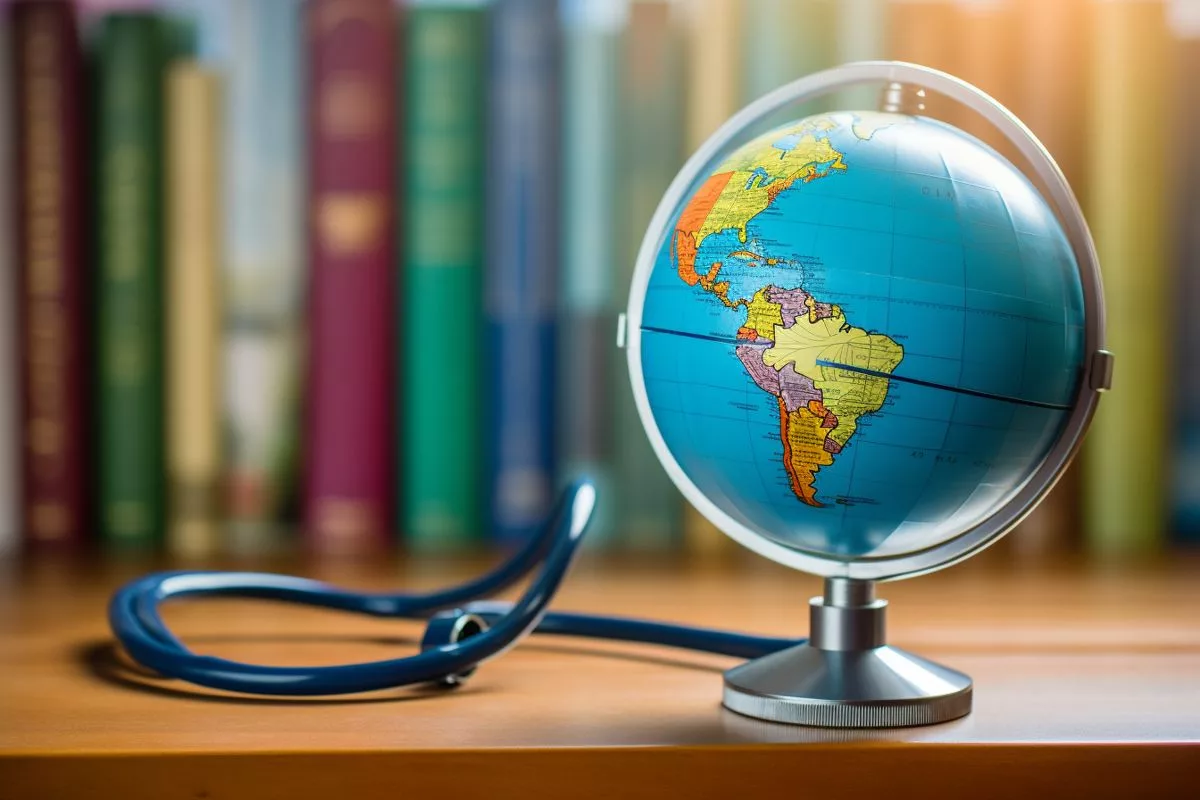Dr. Blade Nzimande, South Africa’s Minister of Higher Education, Science and Innovation, emphasized the potential of science as an agent for societal transformation during his speech at the UNESCO General Conference. He proposed three strategies for scientific progress in Africa, including amplifying investment in science, enhancing public comprehension of science, and promoting international collaboration programs. Dr. Nzimande also highlighted the importance of developing responsive AI governance frameworks to further Africa’s developmental objectives, and urged the immediate implementation of the UNESCO Recommendation on the ethics of AI.
What are the strategies for scientific progress in Africa according to Dr. Blade Nzimande?
Dr. Nzimande proposes three vital strategies for scientific progress in Africa. Firstly, amplifying Africa’s investment in both fundamental and applied sciences, human resources, and scientific infrastructure. Secondly, enhancing public comprehension and appreciation of science in Africa, and lastly, African scientists’ participation in international collaboration programs.
Embracing Science as a Tool for Transformation
On November 15, 2023, a remarkable confluence of distinguished experts attended the UNESCO General Conference in Paris, France. They convened to deliberate on the pressing issue of “The World Needs Science: Most and the Recommendation on Science and Scientific Researchers”. Dr. Blade Nzimande, South Africa’s Minister of Higher Education, Science and Innovation, and a stalwart champion of African scientific progress, graced the event and imparted insightful viewpoints from an African perspective.
Dr. Nzimande proposed a compelling argument that science transcends its traditional role as a solution to the world’s mysteries or a means to enhance human prosperity and sustainability. Instead, he emphasized its potential as an agent for societal transformation. From Dr. Nzimande’s perspective, the arduous legacy of slavery and exploitation in Africa’s history, coupled with its current developmental hurdles, are not impenetrable barriers. Rather, these can be surmounted through a profound shift in the scientific paradigm.
He proposed that science in Africa should instigate groundbreaking change, overturning the historical patterns of unequal development, and serving as a launchpad for Africa’s rejuvenation. He suggested that this could be achieved through three vital strategies, guided by South Africa’s Decadal Plan for Science, Technology, and Innovation.
Critical Actions for Scientific Progress in Africa
Dr. Nzimande’s first recommendation entails amplifying Africa’s investment in both fundamental and applied sciences, human resources, and scientific infrastructure. He fervently argued that African governments should view investment in science as an essential national priority, rather than a task to be relegated to donor or philanthropic funding.
His second suggestion highlighted the importance of enhancing public comprehension and appreciation of science in Africa. He championed a favorable policy framework, especially endorsing the UNESCO Recommendation on Open Science. With South Africa’s readiness to support its implementation by hosting the African Open Science Platform, Dr. Nzimande displayed his commitment to this cause.
Lastly, Dr. Nzimande stressed the need for African scientists to participate more in international collaboration programs. He believes that African science requires global partnerships for its advancement, and it is a crucial source of knowledge necessary for establishing a more inclusive and sustainable world. He underscored the role of multilateral institutions like UNESCO in fostering global scientific cooperation.
Focussing on Artificial Intelligence for Africa’s Development
Within the conference, Dr. Nzimande addressed the concern of Artificial Intelligence (AI), which he recognized as one of our era’s most transformative technologies. According to him, investing in understanding AI’s societal impact and crafting suitable regulatory and governance frameworks, as outlined in South Africa’s Decadal Plan, is a strategic priority.
Dr. Nzimande asserted that for AI to further Africa’s developmental objectives, it is essential for African governments to devise responsive AI governance frameworks. These should guide AI’s ethical, safe, and responsible usage. This is particularly pressing given the rapid pace of AI development and deployment in various sectors, including Large Language Models such as ChatGPT, which present new challenges to educational and training systems.
In his closing remarks, Dr. Nzimande reaffirmed South Africa’s demand for the immediate and comprehensive implementation of the UNESCO Recommendation. This recommendation serves as the initial global standard for the ethics of AI. He contends that this framework addresses the racial and gender bias often found in AI systems, offers protection against human rights violations by AI applications, and ensures that AI development does not exacerbate climate degradation.
Dr. Nzimande’s enlightening address at the UNESCO General Conference underscored the significance of science and AI in catalyzing Africa’s transformation. His call for greater investment in science, the need for supportive policy frameworks, and the importance of international cooperation in science, offered a unique perspective from the African continent and a vision of how science and technology can play a pivotal role in Africa’s rejuvenation and advancement.
What is the importance of science as an agent for societal transformation according to Dr. Blade Nzimande?
Dr. Nzimande emphasizes that science has the potential to serve as an agent for societal transformation rather than just a solution to the world’s mysteries or a means to enhance human prosperity and sustainability. He believes that the arduous legacy of slavery and exploitation in Africa’s history, coupled with its current developmental hurdles, can be surmounted through a profound shift in the scientific paradigm.
How can investment in science lead to scientific progress in Africa according to Dr. Blade Nzimande?
Dr. Nzimande proposes that African governments should view investment in science as an essential national priority, rather than a task to be relegated to donor or philanthropic funding. He suggests amplifying Africa’s investment in both fundamental and applied sciences, human resources, and scientific infrastructure.
What is the importance of enhancing public comprehension and appreciation of science in Africa according to Dr. Blade Nzimande?
Dr. Nzimande emphasizes the importance of enhancing public comprehension and appreciation of science in Africa. He champions a favorable policy framework, especially endorsing the UNESCO Recommendation on Open Science, and displays his commitment to this cause by supporting its implementation through hosting the African Open Science Platform.
Why does Dr. Blade Nzimande stress the need for African scientists to participate more in international collaboration programs?
Dr. Nzimande stresses the need for African scientists to participate more in international collaboration programs because he believes that African science requires global partnerships for its advancement, and it is a crucial source of knowledge necessary for establishing a more inclusive and sustainable world. He underscores the role of multilateral institutions like UNESCO in fostering global scientific cooperation.
How does Dr. Blade Nzimande suggest furthering Africa’s developmental objectives through Artificial Intelligence (AI)?
Dr. Nzimande suggests that investing in understanding AI’s societal impact and crafting suitable regulatory and governance frameworks, as outlined in South Africa’s Decadal Plan, is a strategic priority. He asserts that for AI to further Africa’s developmental objectives, it is essential for African governments to devise responsive AI governance frameworks that guide AI’s ethical, safe, and responsible usage.
What is the UNESCO Recommendation on the ethics of AI?
The UNESCO Recommendation on the ethics of AI serves as the initial global standard for the ethics of AI. Dr. Nzimande believes that this framework addresses the racial and gender bias often found in AI systems, offers protection against human rights violations by AI applications, and ensures that AI development does not exacerbate climate degradation. He calls for its immediate and comprehensive implementation.








